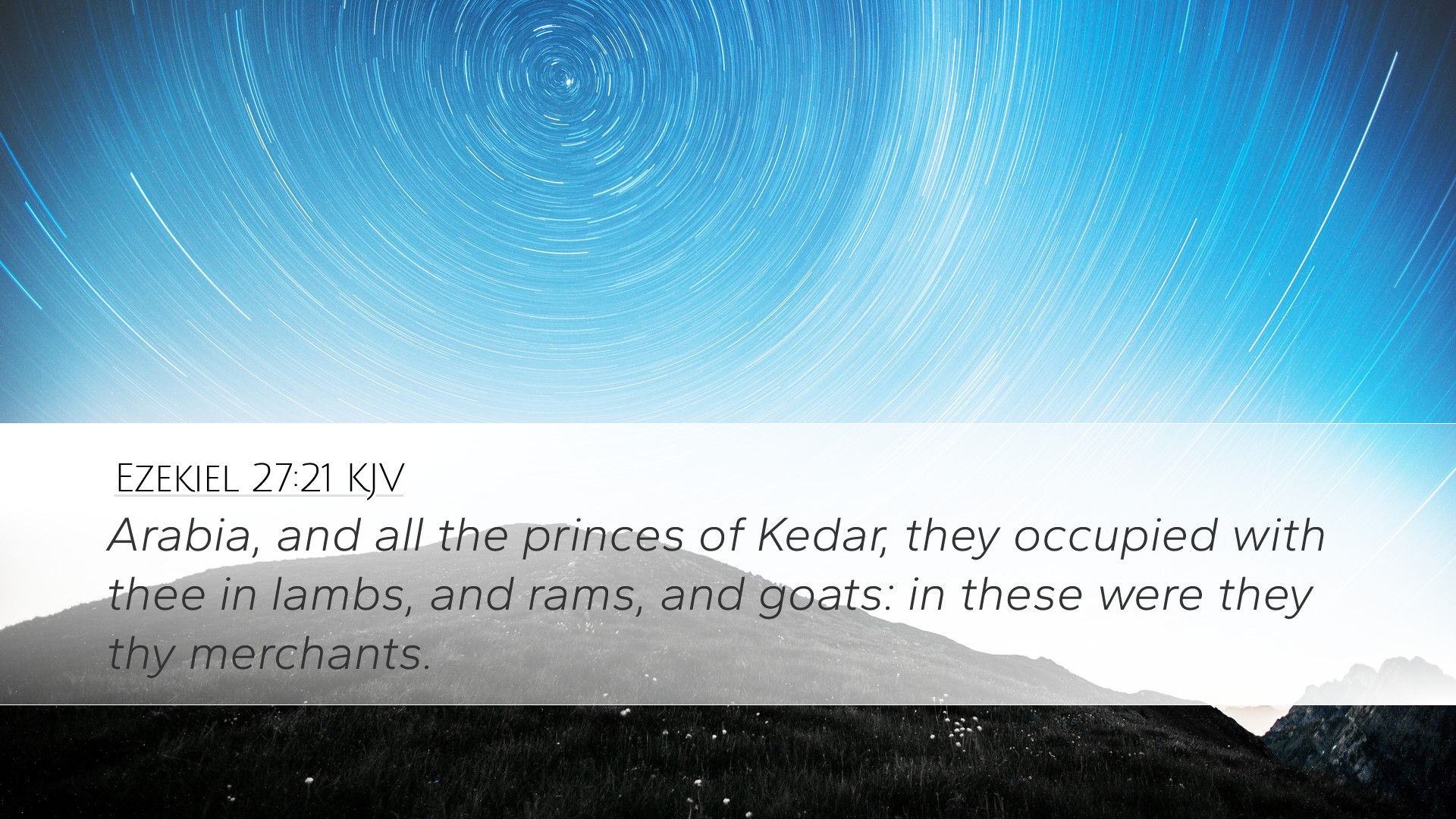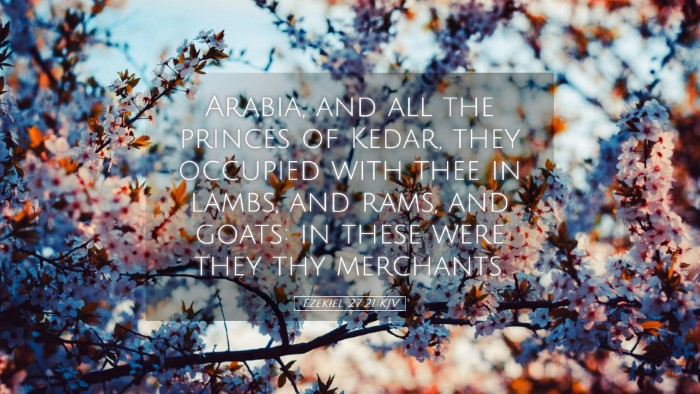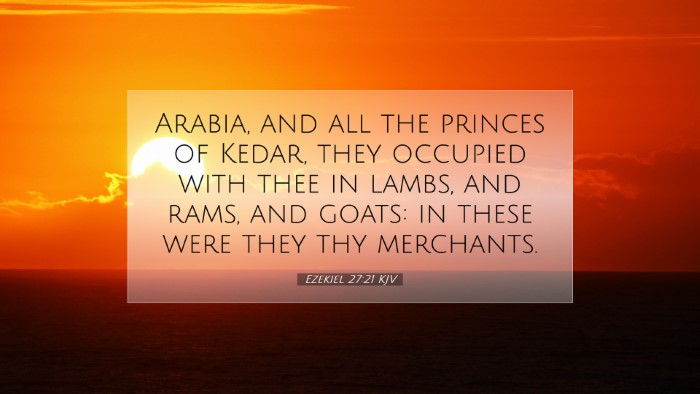Ezekiel 27:21 Commentary
Ezekiel 27:21 states: "The merchants of Sheba and Raamah were your merchants; they exchanged the finest of all kinds of spices and precious stones and gold for your wares." This verse encapsulates the extensive trade network that Tyre established, emphasizing its economic significance and international partnerships. In this commentary, we will delve into the historical, theological, and practical implications of this passage.
Historical Context
In this chapter, Ezekiel describes the downfall of Tyre, a city that was a maritime powerhouse and known for its trading prowess. The mention of Sheba and Raamah highlights the links Tyre had with distant lands. To understand the full import of this verse, we examine the historical context and the role of trade in ancient economies.
1. Trade Dynamics in Ancient Times
The rise of Tyre was closely tied to its strategic location, which facilitated trade across the Mediterranean and beyond, including connections with regions as far as Arabia. Matthew Henry points out that Tyre’s merchandise included not just physical goods but also cultural exchanges. The merchants of Sheba, likely from the north of Arabia known for its wealth in spices, and Raamah, which may refer to a trading region south of Arabia, contributed richly to Tyre’s economy. This trade was not merely transactional but formed relationships that had political and social dimensions.
2. Significance of Spices, Stones, and Gold
The goods exchanged—spices, precious stones, and gold—represent wealth and luxury. Albert Barnes indicates that spices were essential for trade not only for culinary uses but also for religious ceremonies and embalming processes. The precious stones and gold symbolize the opulence of Tyre and its influence in the ancient world. The grandeur of these exchanges points towards a larger commentary on the materialistic focus of nations and city-states.
Theological Insights
Ezekiel’s primary message revolves around the impending judgment of Tyre, which serves as a warning to all nations about pride and reliance on material wealth rather than on God. Adam Clarke provides insight into how this dependence on trade and materialism ultimately led to moral decay. The theological implications of Tyre’s commerce challenge both the city and its leaders, pushing them to recognize the transient nature of material wealth.
1. Warning Against Idolatry of Wealth
Tyre represents the idolatry of wealth where trade and economic success overshadow the worship of Yahweh. Ezekiel’s prophecy illustrates how the cities that exalt themselves will eventually face divine judgment. This serves as a reminder for modern readers to reevaluate their own priorities; material wealth should not overshadow spiritual fidelity. Matthew Henry advises that like Tyre, those who seek prosperity at the expense of righteousness will ultimately face consequences.
2. The Transitory Nature of Material Goods
The fleeting nature of Tyre’s riches exemplifies the biblical truth that “the fashion of this world passes away” (1 Corinthians 7:31). Albert Barnes reiterates the idea that true wealth lies in one's relationship with God and in spiritual riches which cannot be taken away. This serves as a pivotal lesson for believers today: the accumulation of wealth and goods is temporary, and true fulfillment comes from eternal values.
Practical Application
Understanding Ezekiel 27:21 presents numerous lessons for pastors, students, and theologians who aim to apply the Scriptures to modern life. Here are a few practical applications:
- Evaluation of Values: Believers should regularly evaluate their values and priorities, ensuring that they do not place material wealth above their relationship with God.
- Stewardship: The call to stewardship emphasizes using resources responsibly in service to God and others, reflecting the ultimate purpose of wealth in God's kingdom.
- Community Engagement: As Tyre engaged in international trade, modern churches should foster strong community and global relationships focused on uplifting those in need rather than accruing wealth for personal gain.
- Preparation for Accountability: Just as Tyre faced accountability before God, individuals and communities must be prepared to answer for how their resources were utilized and whether they honored God in their dealings.
- Focus on Eternal Rewards: Encourage congregations to prioritize eternal rather than temporal rewards, maintaining a theocentric worldview where God is at the center of all endeavors.
Conclusion
Ezekiel 27:21 serves as a profound statement on the perils of placing trust in material wealth and the inevitable judgment that follows a life devoid of spiritual integrity. By learning from Tyre’s experiences, both historically and theologically, believers today are challenged to seek first the kingdom of God, ensuring that their lives reflect the values of eternity rather than the superficial allure of the present age.


